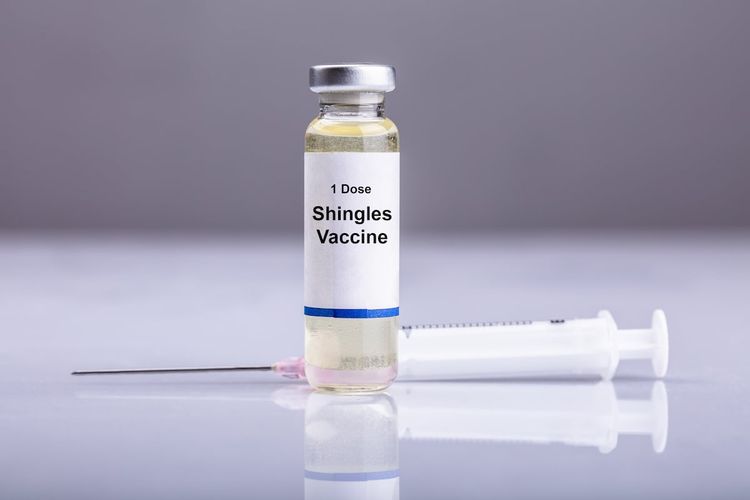Shingles Vaccine Could Lower Dementia Risk

Elderly individuals who receive the shingles vaccine could possibly be reducing their risk of developing dementia.
Shingrix, the updated version of the vaccine created through genetic engineering, seems to provide greater advantages compared to the previous version made from live viruses.
It is still unknown how getting the shingles vaccine is protecting against Alzheimer's and other forms of dementia.
Elderly individuals who receive the latest shingles vaccine may experience an unexpected advantage: a notable decrease in their risk of developing dementia.
One specialist praised the latest discoveries.
According to Dr. Sheona Scales, who is the research director at Alzheimer's Research UK, dementia is not something that always happens as people get older. It is actually caused by diseases like Alzheimer's. It is very important to find new ways to lower the chances of people getting these diseases. A recent study on a large group of people shows that those who received the Shingrix shingles vaccine may have a lower risk of developing dementia.
In general, after six years of research, it was discovered that individuals who received the newer "recombinant" shingles vaccines, such as Shingrix, had 17% more time without being diagnosed with dementia compared to those who received the older "live" version of the vaccine, Zostavax.
Scales, who was not part of the study, stated that it is not certain how the vaccine is helping to lower the risk of dementia. It is also unclear if the vaccine directly reduces the risk of dementia or if there is another factor involved. Therefore, further research is necessary to investigate this potential effect.
The results were released on July 25th in the publication Nature Medicine.
Andrew Doig, a biochemistry professor at the University of Manchester in England, mentioned that there has been a suspected connection between getting infected with the herpes zoster virus, which causes chickenpox and shingles, and developing dementia for quite some time.
He mentioned that during the time when live vaccines like Zostavax were administered for shingles, there was some indication that the previous live vaccine could potentially lower the chances of developing Alzheimer's disease.
However, in 2017, medical professionals began transitioning from the use of live vaccines to more modern recombinant shots like Shingrix.
In the USA, the CDC now advises that individuals who are 50 years old or above should receive the Shingrix vaccine in order to protect against shingles and its potential complications.
In a recent research project, a team of British scientists led by Maxime Taquet from the University of Oxford analyzed information from nearly 208,000 individuals in the United States who received their initial shot of a shingles vaccine from 2014 to 2020.
During that time, around 50% of the participants received the older Zostavax vaccine, and the remaining 50% were given the newer Shingrix shot.
After six years of getting the Shingrix vaccine, people experienced 17% longer time without being diagnosed with dementia compared to those who did not get the vaccine. This means they had an extra 164 days without a dementia diagnosis. This information was shared in a news release by Nature.
The advantage was slightly stronger (by approximately 9%) in women as opposed to men, according to the study.
The impact appeared to be unique to the shingles vaccination, as two other vaccines commonly administered to seniors, the flu shot and the Tdap vaccine, did not demonstrate this beneficial effect on the nervous system.
Is it possible that the same virus responsible for shingles, known as the herpes zoster virus, could also contribute to the development of dementia?
Doig stated that establishing a connection between the virus and Alzheimer's disease is not straightforward. He pointed out that most individuals who contract the virus do not develop Alzheimer's, and some who receive the new vaccine still develop the disease.
A vaccine may not be able to completely stop Alzheimer's disease. There are several other factors that can increase the risk of developing dementia, like genetics, heart issues, and head injuries, according to him.
"However, addressing the herpes zoster virus appears to be a hopeful approach to overcoming this terrible and expensive illness, and one that should be actively pursued," stated Doig.
The Mayo Clinic provides information about the shingles vaccination.
References: Nature Medicine publication, press release from July 25, 2024; Statements from experts provided by the UK Science Media Centre on July 25, 2024.
What Do You Get Out Of This?
Elderly individuals who receive the latest shingles vaccine could potentially receive a form of defense against dementia.











































